THEME ➁
Developing eco-friendly
steelmaking technology
to steer away from the carbon-intensive industry
JooHyun Park / Department of Materials Science & Chemical Engineering
One of the greatest motivations of Professor JooHyun Park, who has been devoted to the development of steelmaking technology over the past 25 years, is seeking answers to the question, ”How can we reduce carbon emissions generated in the steelmaking process?” To this end, Prof. Park has actively participated in the government-led COOLSTAR project, Hyundai Steel’s Designated Research Laboratory, and POSCO’s Carbon-Neutral Green Steel Technology Advisory Panel, to conduct joint research with companies for the development eco-friendly steelmaking technologies.
- Written by · YeongIm Park
- Photo by · Hyun-goo Lee
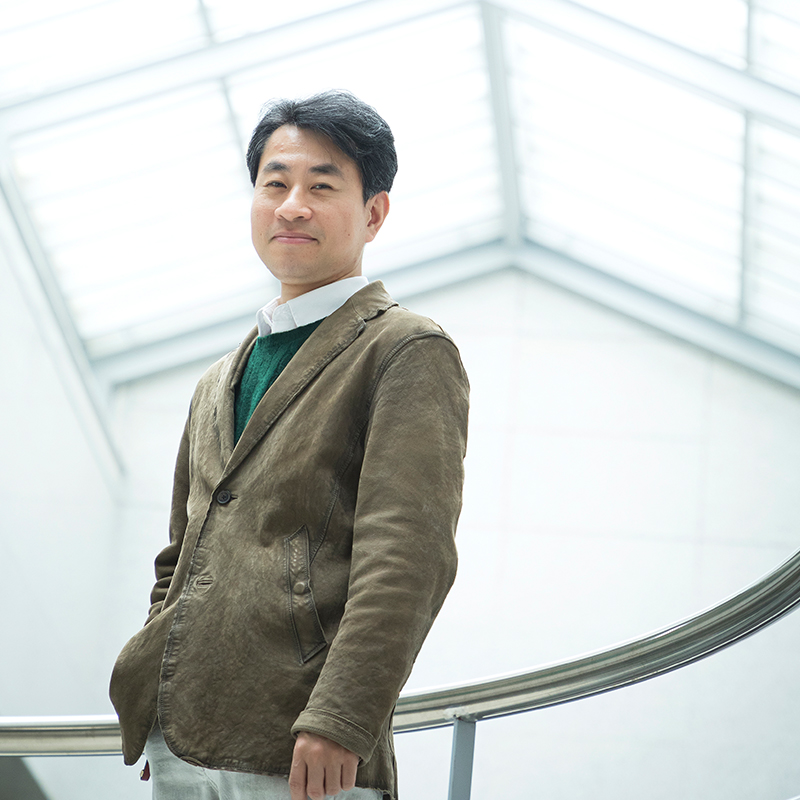
Steelmaking industry accounts for 14% of domestic greenhouse gases emissions
“What is something semiconductors, automobiles, and ships have in common?” Professor JooHyun Park started the interview with this unexpected question. Although we know that these items are some of Korea’s representative export items, Prof. Park provided an expected answer.
“What they have in common is that they use steel. Korea is the world’s 6th-largest steel producer and at the same time, the world’s largest steel consumer. This means that Korea’s steel consumption per capita is the highest. That has consequentially given Korea the highest competitiveness in the semiconductor, automobile, and shipbuilding industries.”
There is a long list of industries in which steel is used including construction, the manufacturing of machinery, electronics, and medicine, and in areas where steel is used in everyday life. However, the problem is that significant amounts of greenhouse gases are generated in the process of producing steel. Iron can be obtained only by removing oxygen from iron oxide in its natural state, and carbon has been used to extract iron for the past hundreds of years for a simple reason: it is the cheapest method.
“Unfortunately, current steelmaking technology produces one ton of iron from iron ore, emitting approximately two tons of CO2 and thus emitting about 7% of the world’s greenhouse gases. In Korea however, the ratio is double. In other words, Korea’s steelmaking industry is responsible for the discharging of 14% of the world’s entire CO2 emissions.”
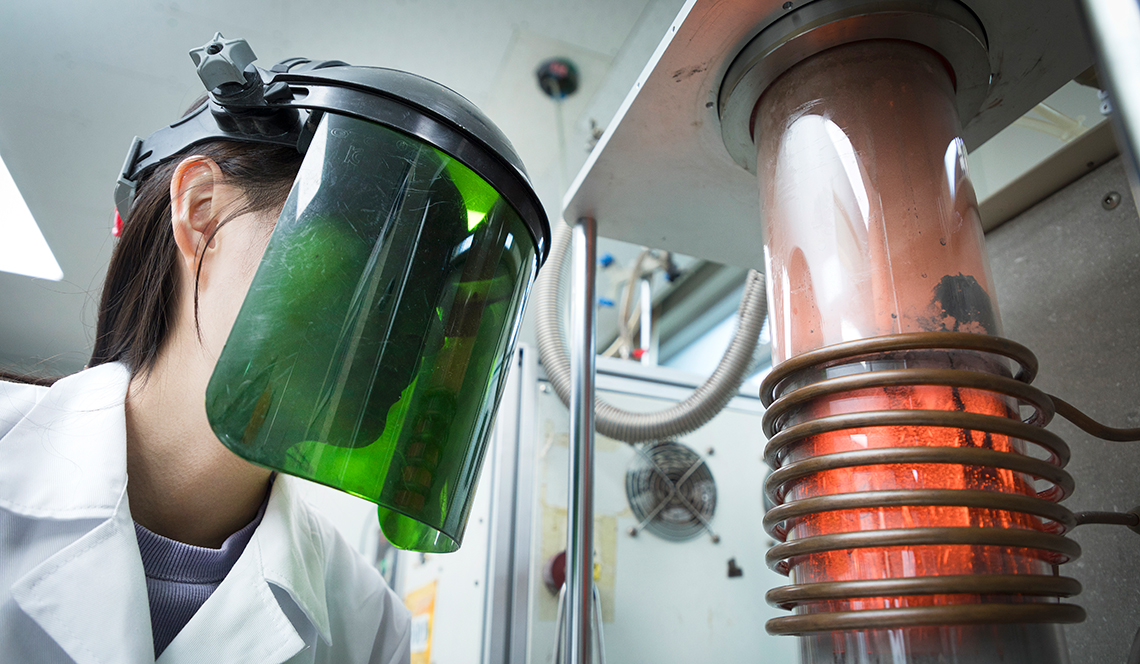 The Laboratory for High-Temperature Physicochemical Processing of Materials (led by Prof. JooHyun Park), a Designated Research Laboratory of Hyundai Steel, is taking the lead in solving environmental challenges facing the steelmaking industry.
The Laboratory for High-Temperature Physicochemical Processing of Materials (led by Prof. JooHyun Park), a Designated Research Laboratory of Hyundai Steel, is taking the lead in solving environmental challenges facing the steelmaking industry.
Based on the Paris Agreement of 2015, developed countries voluntarily agreed to and subsequently announced greenhouse gas reduction goals, which they have been striving to achieve. The steelmaking industry has also actively joined these efforts and in particular, steelmaking companies in Europe and Japan have been one step ahead in developing greenhouse gas reduction technologies. The European Union has been promoting the ULCOS (Ultra-Low CO2 Steelmaking) project since 2004, while Japan has been promoting its government-led project called COURSE50 (CO2 Ultimate Reduction System for Cool Earth 50) since 2007. Both efforts aim to develop steelmaking technology that can dramatically reduce carbon emissions.
Korea is also busy converting all its steel-related industries to match those of low-carbon economies with the goal of achieving carbon neutrality by 2050. The nation’s steelmaking industry has been operating an eco-friendly steelmaking technology development project called CO2 Low-Emission Technology of Steelmaking and Hydrogen Reduction (COOLSTAR) led by the government since 2017.
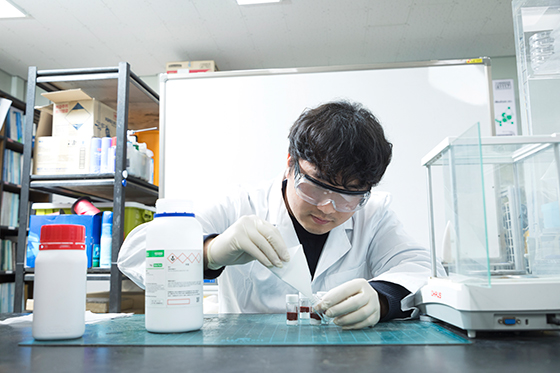
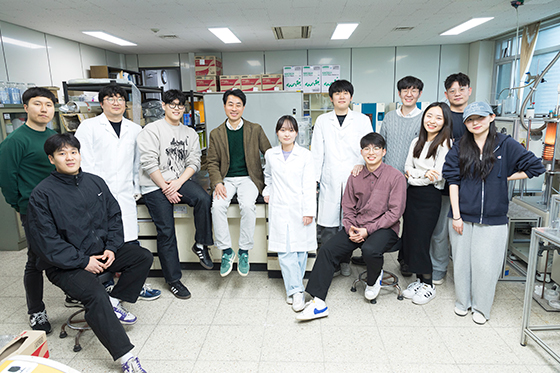
What if we use hydrogen instead of carbon?
“My lab is also participating in the project. Although Korea started its journey toward the development of eco-technology about 10 years later than Europe or Japan, more than 20 domestic universities, government-funded research institutes, and companies are pooling their efforts to accelerate technology development. Now that the first phase of our research has been completed (2017-2023), we will begin from this year the second phase of research for the next eight years.”
The goal of the COOLSTAR project is to develop world-class eco-friendly steelmaking technologies such as ”hydrogenbased reduction steelmaking.” According to Prof. Park, iron will be produced using hydrogen rather than carbon in the future. Hydrogen can produce iron in a clean and environmentally friendly way because it removes oxygen from iron ore generating H2O or water, rather than CO2. However, the challenge is finding where the much needed hydrogen can be obtained in large quantities and at affordable prices. For the sake of the environmental preservation, “green hydrogen” must be pursued, which is made by decomposing water using electricity produced from renewable energy. Unfortunately however, green hydrogen is not being produced in sufficient quantities for use in Korea’s steel mills. As a result, some steelmaking companies are considering importing green hydrogen from Australia, the Middle East, and Southeast Asian countries for hydrogen-based reduction steelmaking.
Another alternative is to produce high-quality steel products with scrap metal rather than iron ore. When producing iron by melting scrap metal, CO2 emissions can be reduced by about one-fifth compared with producing iron from iron ore. But that also has certain challenges, namely that melting scrap metal consumes a huge amount of electrical energy. This means electricity must be produced with new and renewable energy to create truly ecofriendly steel. This also means that state-of-the-art technology needs to be invented to remove impurities in scrap metal.
“The country or company that is the first to solve these two challenges will lead the future of steelmaking technologies. Korea has no high-grade iron ore and is extremely short of new and renewable energy. In other words, we are playing on an uneven playing field. However, Korea boasts excellent talent who possess creativity and diligence. My lab is also conducting various joint research projects with domestic steel companies.”
Maintaining organic cooperative relationships
through cooperation with companies
to achieve carbon neutrality,
and conducting various joint research projects

Conducting eco-friendly steelmaking technology research in collaboration with steelmaking companies
Prof. Park has been contributing to the localization of highquality steel through his research on high-value-added steelmaking technologies over the past 25 years. He was selected to lead the first Designated Research Laboratory by Hyundai Steel in 2021 and is now training and nurturing excellent human resources through joint research on ecofriendly and high-value-added steelmaking technologies.
The main purpose of such research is to develop eco-friendly steelmaking processes to reduce CO2 emissions. Specifically, his team is developing process technology that can save energy in electric furnaces and reduce CO2 emissions in the process of melting scrap iron or other iron raw materials in an electric furnace to produce high-quality steel. In addition to process technology that can directly reduce CO2 emissions, his team is also conducting research on high-class steel-plate manufacturing technologies for electric motors, which are essential for eco-friendly electric vehicles.
In the meantime, Prof. Park has also been serving as a member of the POSCO Carbon Neutral Green Steel Technology Advisory Panel since 2022. In this panel, experts from various fields gathering to discuss strategies for POSCO’s proprietary Hydrogen Reduction Ironmaking (HyREX), which is eco-friendly steelmaking technology centered on hydrogen-based reduction steelmaking. The panelists are also meeting to share ideas regarding the production, transportation, and storage of hydrogen required for this process as well as various energy security measures. Moreover, Prof. Park is advising POSCO on “eco-friendly electric furnace process technology.”
“We are collaborating with steelmaking companies to achieve carbon neutrality. For companies, immediate profit is important but specific action plans for ESG management must also be established and implemented from a long-term perspective. Therefore, companies should maintain organic cooperative relationships with professional manpower at universities. And universities should place more emphasis on training and nurturing highly capable talent that companies need.”
Prof. Park is focusing not only on technology development, but also on producing competitive human resources. He believes that universities should nurture the best graduates they can, and guide them to contribute to national development, humanity, and the environment, beyond the profits of each company in the industrial field.
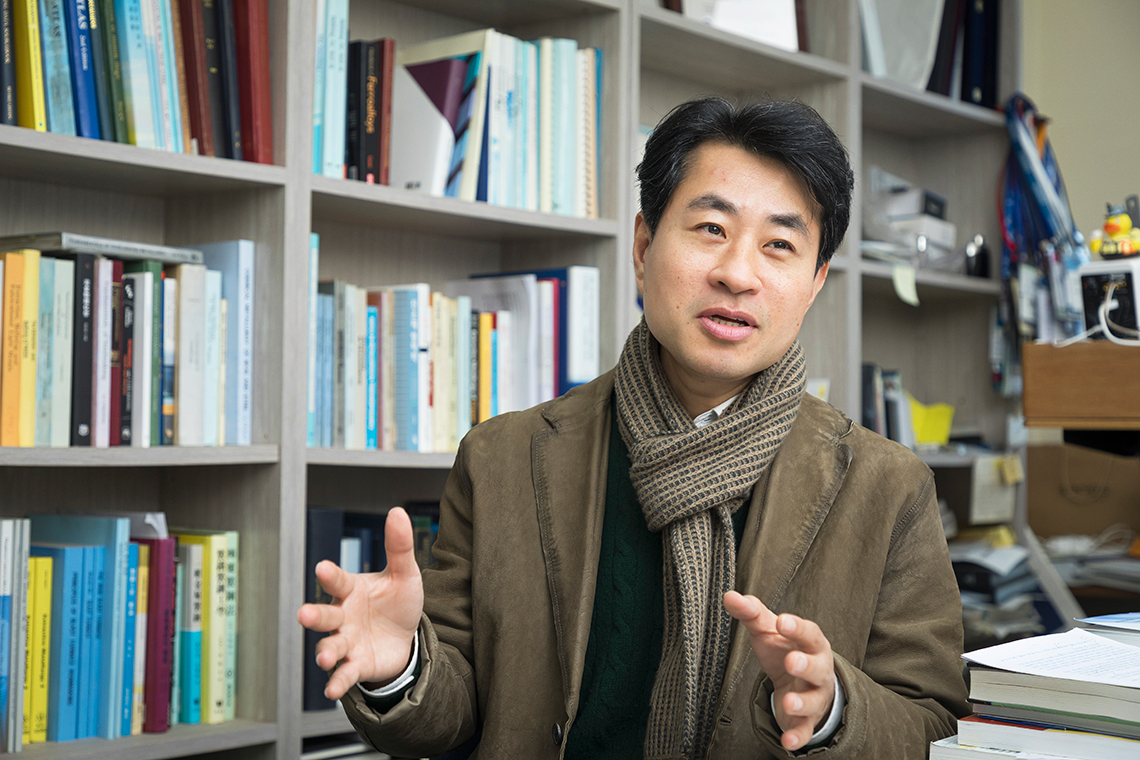 Prof. JooHyun Park is a researcher who is contributing to the local development of high-quality, eco-friendly steel products through research on high value-added steelmaking technology.
Prof. JooHyun Park is a researcher who is contributing to the local development of high-quality, eco-friendly steel products through research on high value-added steelmaking technology.






